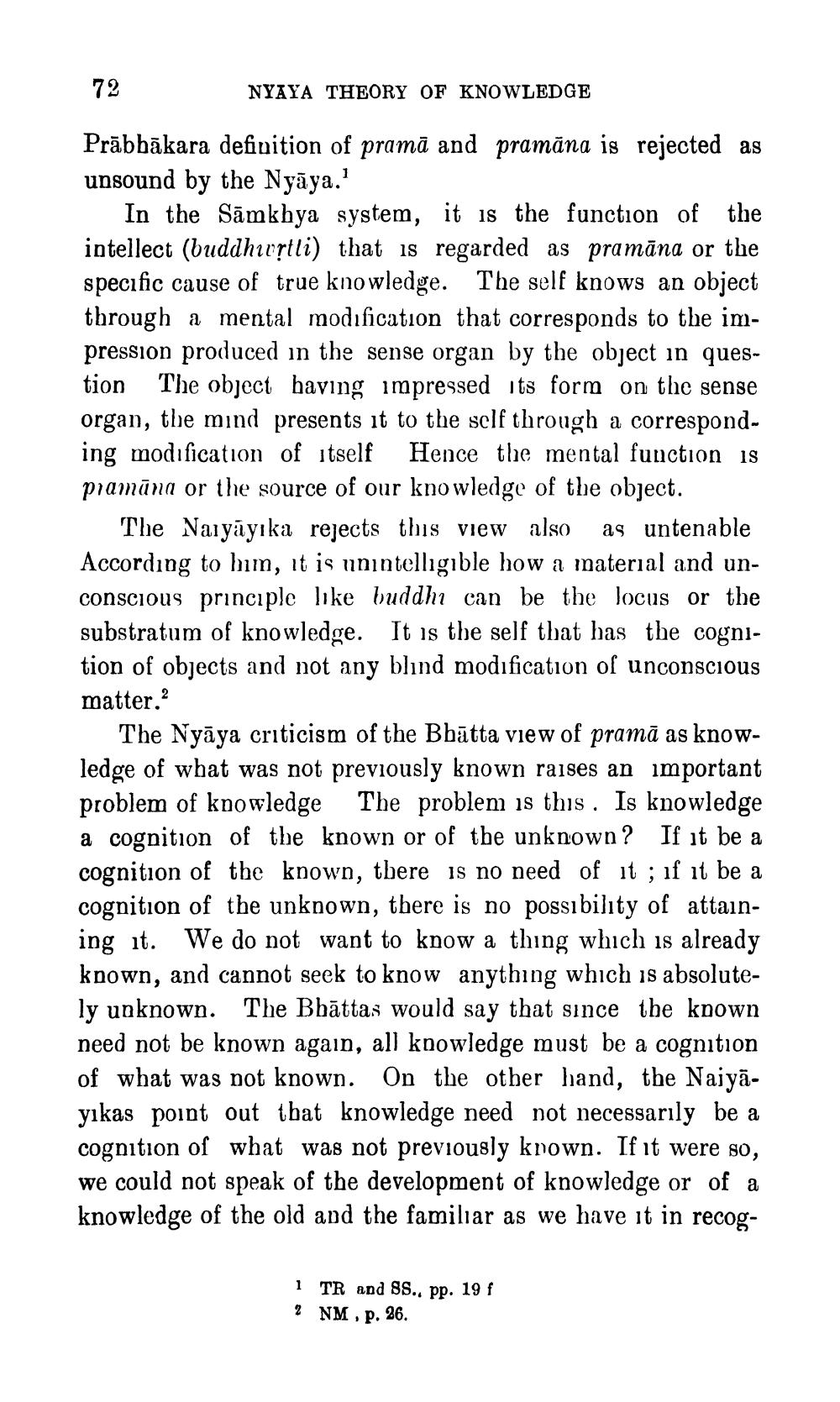________________
72
NYAYA THEORY OF KNOWLEDGE
Prabhakara definition of prama and pramana is rejected as unsound by the Nyaya.'
In the Samkhya system, it is the function of the intellect (buddhiṛtli) that is regarded as pramāna or the specific cause of true knowledge. The self knows an object through a mental modification that corresponds to the impression produced in the sense organ by the object in question The object having impressed its form on the sense organ, the mind presents it to the self through a corresponding modification of itself Hence the mental function is pramāna or the source of our knowledge of the object.
The Naiyayika rejects this view also as untenable According to him, it is unintelligible how a material and unconscious principle like buddh can be the locus or the substratum of knowledge. It is the self that has the cognition of objects and not any blind modification of unconscious matter.2
The Nyaya criticism of the Bhatta view of pramā as knowledge of what was not previously known raises an important problem of knowledge The problem is this. Is knowledge a cognition of the known or of the unknown? If it be a cognition of the known, there is no need of it; if it be a cognition of the unknown, there is no possibility of attaining it. We do not want to know a thing which is already known, and cannot seek to know anything which is absolutely unknown. The Bhattas would say that since the known need not be known again, all knowledge must be a cognition of what was not known. On the other hand, the Naiyayikas point out that knowledge need not necessarily be a cognition of what was not previously known. If it were so, we could not speak of the development of knowledge or of a knowledge of the old and the familiar as we have it in recog
1 TR and SS.. pp. 19 f
2 NM, p. 26.




